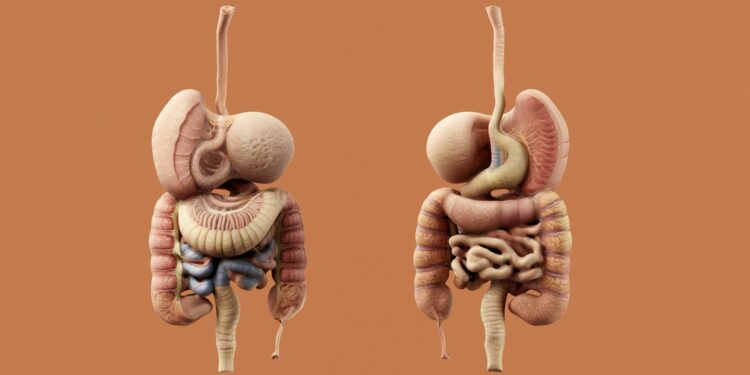It’s a possible game-changer.
As of 2019, approximately 4.9 million people worldwide were living with inflammatory bowel disease (IBD), which includes chronic conditions like ulcerative colitis and Crohn’s disease that affect the digestive tract.
The precise cause of ulcerative colitis remains unknown, but several risk factors have been identified, including genetics, ethnicity, environmental influences such as smoking, and imbalances in gut microbiota.
Currently, there is no known cure for ulcerative colitis. Treatment typically involves medications like corticosteroids and immunosuppressants, dietary adjustments, and in some cases, surgical intervention. Nutritional support using supplements like omega-3 fatty acids, vitamin D, B12, iron, zinc, and probiotics has been shown to help ease symptoms in some patients.
A new study published in the Journal of the Science of Food and Agriculture introduces a potential natural aid for managing ulcerative colitis. Researchers investigated an extract from Arbutus unedo, commonly known as the strawberry tree, which is native to the Mediterranean and parts of Western Europe and has long been used in traditional herbal medicine.
Dr. Soumaya Wahabi of the Higher Institute of Biotechnology of Beja at the University of Jendouba in Tunisia, who led the research, explained that her team initially studied the extract for its effects on obesity and constipation. Encouraged by those findings, they shifted their focus to inflammation, particularly related to ulcerative colitis.
Previous research has shown that the fruit and leaves of Arbutus unedo are rich in antioxidants and exhibit antimicrobial, antiviral, and anti-inflammatory properties. The extract contains various bioactive compounds—such as phenolic acids and flavonoids like quercetin and catechin—known for their ability to combat oxidative stress and inflammation, both of which play major roles in the development of ulcerative colitis.
To test the extract’s effectiveness, researchers administered it to mice prior to exposing them to a chemical that induces colitis-like symptoms. The results showed that the treated mice experienced less damage to their colon lining and developed fewer lesions than untreated mice. Additionally, there was a reduction in the expression of proteins linked to oxidative stress and inflammation.
“These results suggest that Arbutus unedo extract may help protect the colon and reduce the severity of ulcerative colitis by minimizing inflammatory damage,” said Dr. Wahabi. She also noted plans for future research using human intestinal cell models to better understand the mechanisms behind the extract’s effects and to explore its potential use in clinical settings.
Dr. Jillian Cohen, an integrative medicine specialist at Hackensack Meridian Health in New Jersey who was not involved in the research, commented on the findings. She described the study as promising and pointed to the value of natural substances in managing complex inflammatory conditions.
“While these findings are based on animal models and more research is needed, especially in humans, the study reinforces the importance of exploring plant-based, evidence-supported therapies for chronic diseases like ulcerative colitis,” she said.
Dr. Cohen emphasized the need for rigorous testing before such treatments are integrated into medical practice. “Just because a substance is natural doesn’t mean it’s automatically safe. It’s crucial to conduct thorough clinical trials to assess safety, efficacy, and how such extracts could complement existing treatment plans,” she added.
The research on strawberry tree extract represents a step forward in identifying potentially effective, plant-based therapies for ulcerative colitis, offering hope for more accessible and less invasive treatment options in the future.

































Discussion about this post